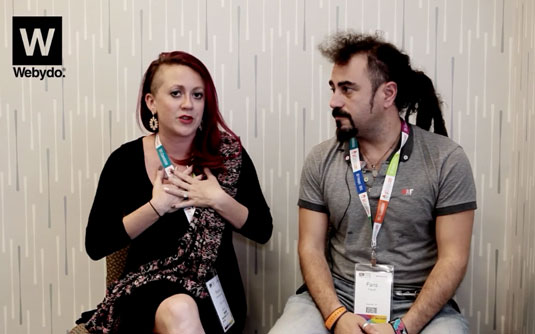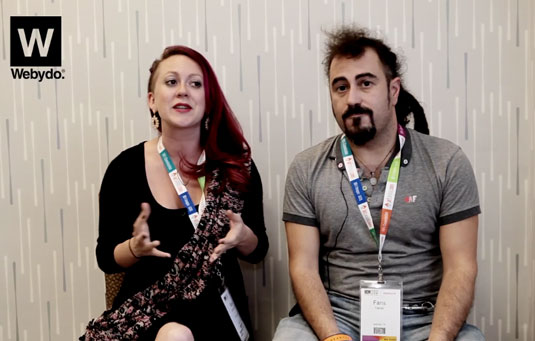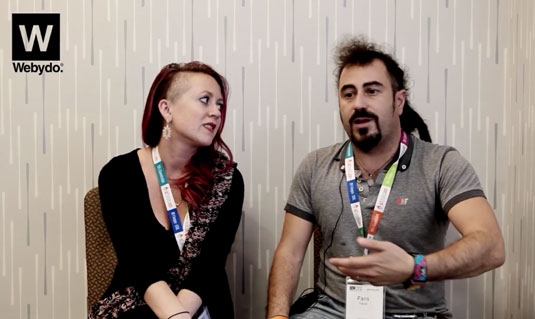Why it's okay to steal other people's ideas
Stealing creative ideas is legitimate, say Faris and Rosie Yakob – but that's not the same as copying them.

As a designer, what do you do when you are looking for inspiration? Take a walk? Ponder the meaning of life? Let's be honest… your journey to inspiration probably consists of stops to, say, your favourite inspiration galleries, trolling other designers' sites or obsessing on an awards site over the latest Site of the Day winners. Now, the question is, if you implement these ideas in your projects, is it stealing?
Writers have footnotes, lawyers have legal precedent, journalists have sources, but what do designers have?
You are probably getting slightly offended, unnerved or possibly impatient if your idea of light reading doesn't include being called a thief. But take the time to read on...
Eureka or just hard work?
There are essentially two schools of thought on the topic of where ideas come from. The first frames an artist or creative as an antenna, where ideas are floating around on various frequencies, waiting to be picked up when a person tunes in to the right frequency.
This is Keith Richards waking up in the middle of the night with the main riff from "Satisfaction" fully-formed in his head, recording it, and then falling back to sleep. "On the tape you can hear me drop the pick," Richards recalled. "The rest is me snoring."
In contrast, the second school dictates that ideas come from methodical research, practice and perseverance. "It's just work," says Andy Warhol to Lou Reed about songwriting in Reed's album with John Cale, Songs for Drella.
The song goes on to describe Warhol (who sponsored and promoted the band earlier in their career) pestering Reed to write more songs, repeating again and again that "work is the only acceptable human condition."
Daily design news, reviews, how-tos and more, as picked by the editors.
Ideas are networked
As part of Webydo's ongoing series of Design Talks, we asked award winning creative directors, Faris and Rosie Yakob to explain their revolutionary, yet understated concept that, "creative people understand that ideas come from other ideas" (aka "Genius steals"). You can watch the full interview at the bottom of this post.

Faris and Rosie believes that creative ideas come from somewhere in between the classic eureka moment and the tedium of putting the pencil to the paper.
They define ideas as "new combinations of things inherently networked to other ideas". So, ideas essentially come from within and without – it is simply our perception of their source that influences the suggestion of "moment of clarity' versus "hard work.'
Digging deeper, Faris likens this concept to the way memory is stored: associatively. The brain lets one idea lead to another or explores more the connection among ideas.
No new ideas
Faris forwards this notion to the realm of culture saying that, "all concepts exist associatively in a network of culture and the way you get new ideas, or what seems to be new, is by finding different pieces that are not obviously related and connecting them in some interesting way." If that didn't make any sense, the takeaway from this theory is that no idea is a new idea!
The concept of networking and further, a "stolen idea" doesn't seem to bother most creatives. Mark Twain famously and deliberately stated:
"There is no such thing as a new idea. It is impossible. We simply take a lot of old ideas and put them into a sort of mental kaleidoscope. We give them a turn and they make new and curious combinations. We keep on turning and making new combinations indefinitely; but they are the same old pieces of colored glass that have been in use through all the ages."
Stealing is okay
Answering the question on where he finds inspiration, Faris proudly declares, "I steal it – all my ideas are stolen. Hence, Genius Steals!" Faris and Rosie go back and forth on the morality of stealing.

"Stealing in our schema of language is not dishonest," says Faris. "It exposes its debt. It uses the reference. It says, "This is the reference. I'm using it. I'm putting it in here.'"
"And hopefully makes it better and builds upon it," adds Rosie. Faris continues: "Copying is parting off. You see something; you pretended it. It's immoral and emotionally unsatisfying - and also lame."
So, what have we learned?
Designer's footnotes, precedents and sources are their ideas. Next time you are scanning the internet and see an inspiring layout, killer icon or unique menu placement - roll with it and make it your own.
As long are you aren't copying, you are forwarding the collective knowledge of your network and from that, can only come more good ideas. For more on Faris and Rosie's creative journey and sources of inspiration, watch the full interview below:
Words: Caroline Reder
Caroline Reder is the communications and media manager at Webydo. She has a background in consulting for start ups, tech companies, non-profits and an interest in the intersection of design and data. You can find her on Twitter @reder_c.
Liked this? Read these!
- Do designers need to stop acting like victims?
- The designer's guide to working from home
- How to build an app: try these great tutorials

The Creative Bloq team is made up of a group of art and design enthusiasts, and has changed and evolved since Creative Bloq began back in 2012. The current website team consists of eight full-time members of staff: Editor Georgia Coggan, Deputy Editor Rosie Hilder, Ecommerce Editor Beren Neale, Senior News Editor Daniel Piper, Editor, Digital Art and 3D Ian Dean, Tech Reviews Editor Erlingur Einarsson, Ecommerce Writer Beth Nicholls and Staff Writer Natalie Fear, as well as a roster of freelancers from around the world. The ImagineFX magazine team also pitch in, ensuring that content from leading digital art publication ImagineFX is represented on Creative Bloq.
